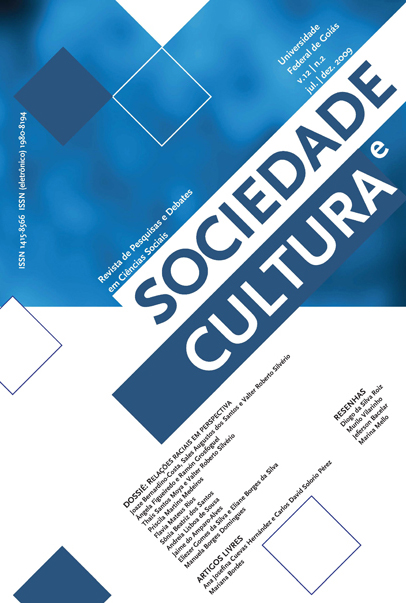Black Women’s NGOs in Brazil
DOI:
https://doi.org/10.5216/sec.v12i2.9102Keywords:
Brazilian black women non-governmental organizations, NGOs, black feminism, race, genderAbstract
This article aims to analyze black women’s non-governmental organizations (NGOs) in Brasil. First, I identify which are the objects of the collective struggle of black women in Brasil, and how they relate to the process of emancipation of black women from the black and feminist movements, culminating in the subsequent formation of the black feminism (and of the black women movement). The second part discusses the political and organizational aspects, and the political action of this group of NGOs in the Brasilian society. In particular, it look at what I called as gendered racial perspective of black women’s NGOs; this perspective reflects a singular condition of oppression – i.e., the intersection of race, gender (and class, sexuality) – that this group have experienced. It concludes addressing the African diasporic dimension of these Afro-Brazilian women’s gendered racial perspective.Downloads
Download data is not yet available.
Downloads
Published
2010-03-18
How to Cite
SANTOS, SÔNIA BEATRIZ DOS. Black Women’s NGOs in Brazil. Sociedade e Cultura, Goiânia, v. 12, n. 2, p. 275–288, 2010. DOI: 10.5216/sec.v12i2.9102. Disponível em: https://revistas.ufg.br/fcs/article/view/9102. Acesso em: 12 feb. 2026.
Issue
Section
Thematic Dossier
License
Authors who publish in this journal agree to the following terms:
- Authors retain the copyright and grant the journal the right of first publication, the work being simultaneously licensed under the Creative Commons Attribution License, which allows the sharing of the work with acknowledgment of authorship and of the initial publication in this journal;
- Authors are authorized to enter into additional contracts separately, for non-exclusive distribution of the version of the work published in this journal (eg, publishing in an institutional repository or as a book chapter), with acknowledgment of authorship and of the initial publication in this journal;
- Authors are allowed and encouraged to post and distribute their work online (eg, in institutional repositories or on their personal page) at any point before or during the editorial process, as this can bring productive change as well as increases the impact and the citation of the published work (see O Efeito do Acesso Livre).



